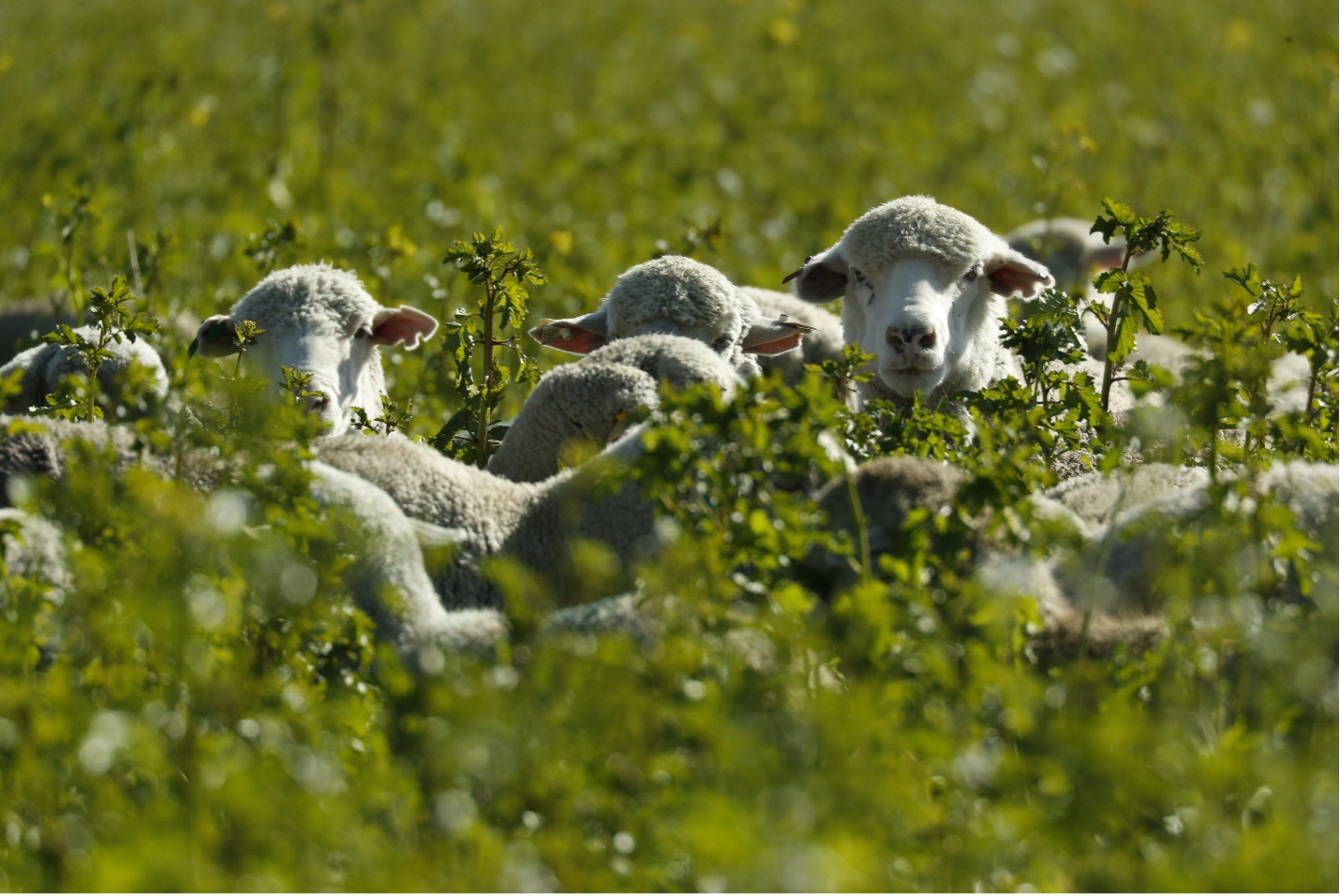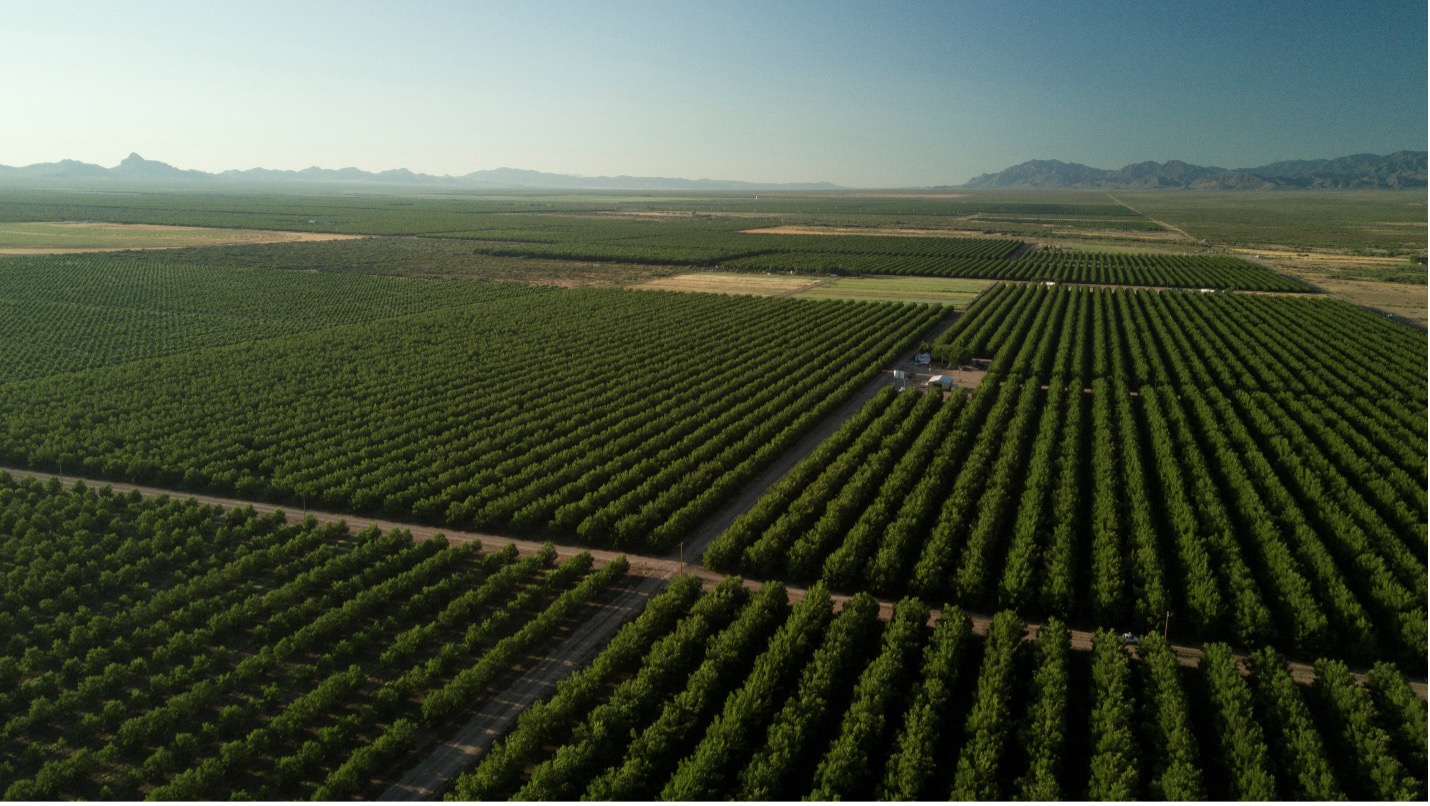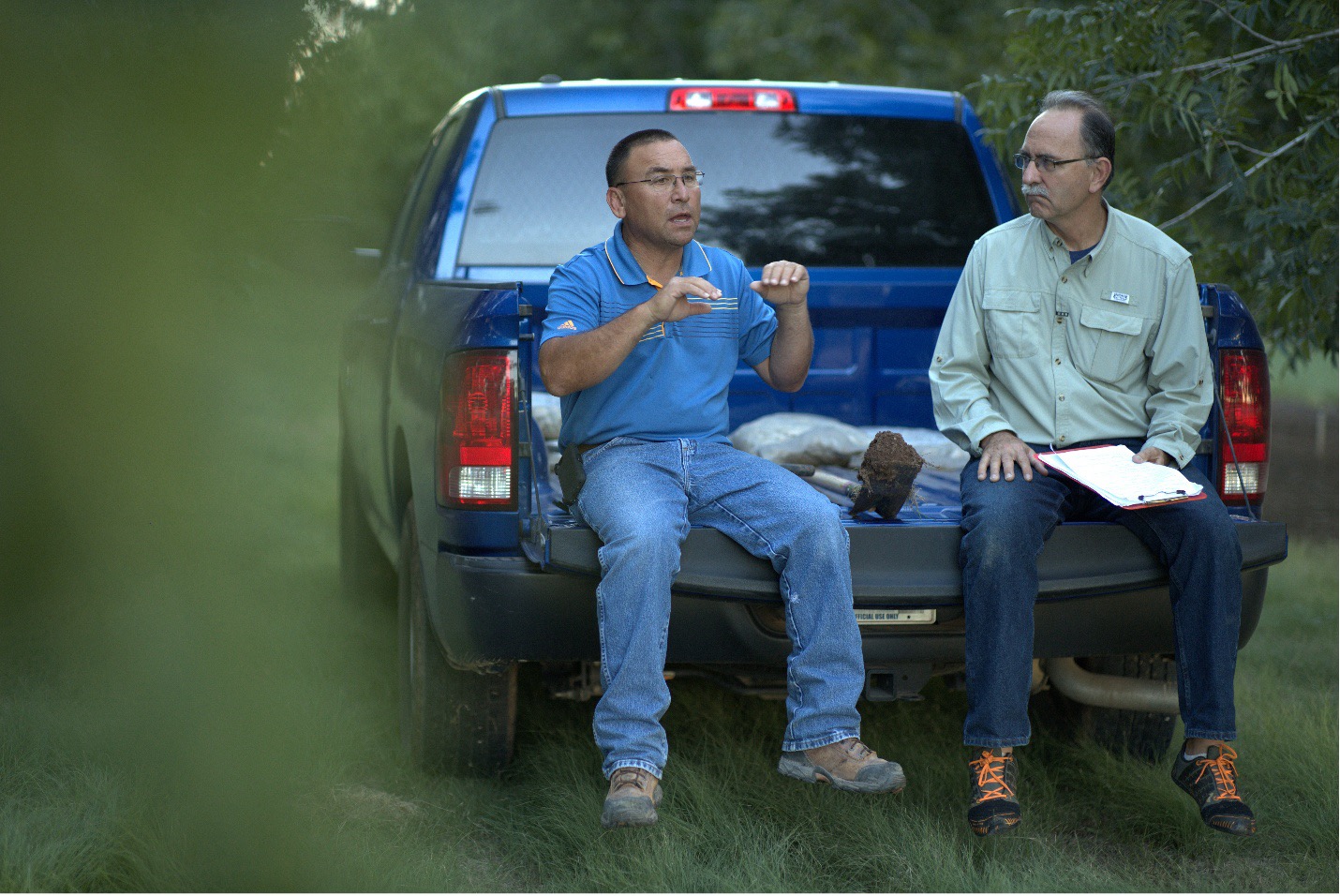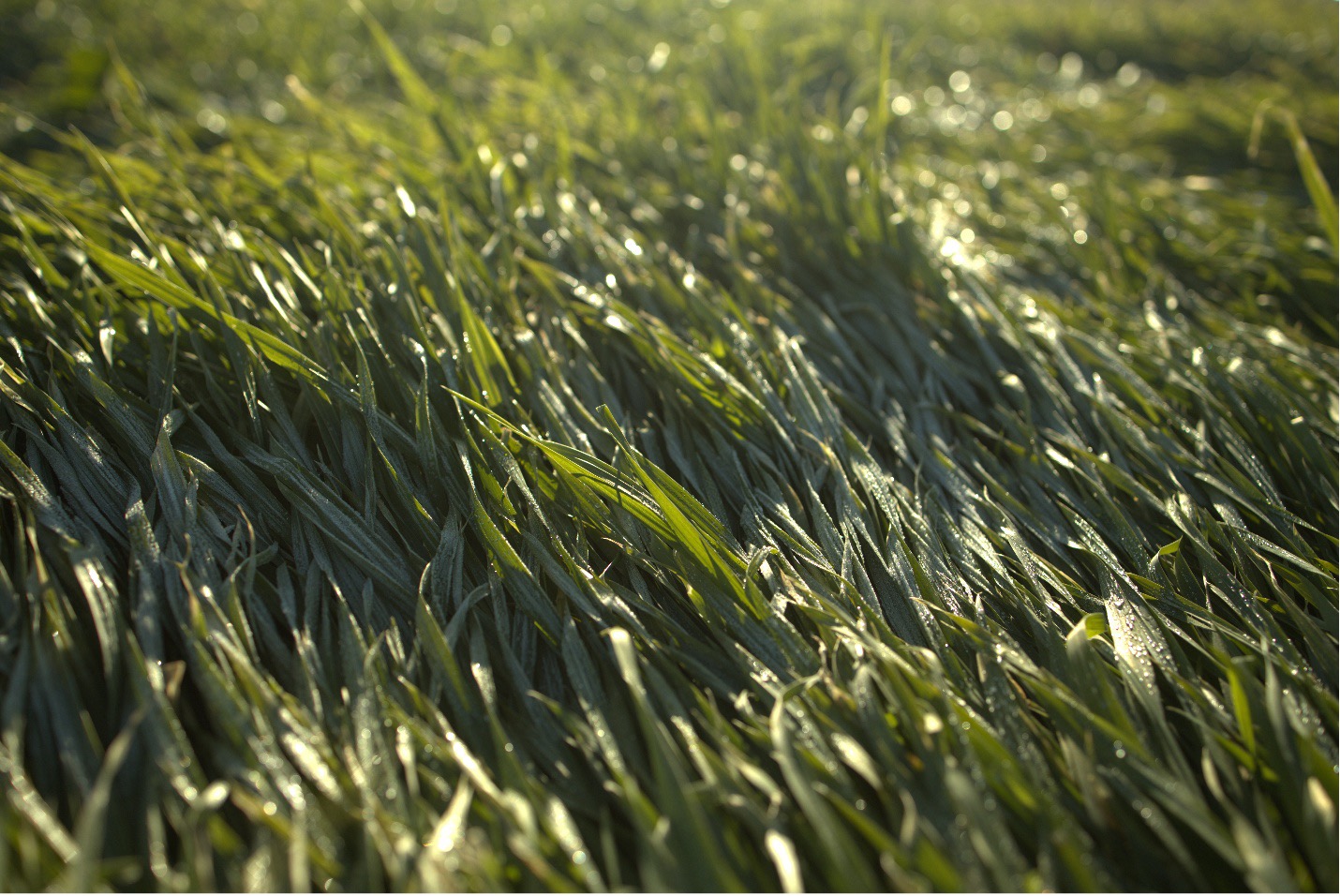
Lance and his wife, Kim, spend their days growing a wide variety of Certified Naturally Grown vegetables, fruits, and flowers on their 1.25 acres east of Ridgeway, SC. By utilizing waste products from nearby – yard waste, wood chips, spent grain brewery waste, rice hulls – Lance has been able to create a constant production of compost and compost tea to keep his soil covered and teeming with microbes throughout every growing season. By focusing on working WITH natural systems rather than AGAINST them, Bushels and Bags Farm has found season after season of delicious productivity.
1) What one thing have you done that’s been most important to the success of your operation?
I would say the most important thing is just working with the systems that are already in place, and not trying to reinvent the wheel or add anything to that. Take what's already here and really just bring it back to life. I mean, there wasn't any life here because of intervention from forestry and things like that. But I just came in alongside the things that help recreate soil, the natural systems that are already in place; the birds and the microbiology and the bugs and things, and just encouraged that instead of trying to work against it, or around it for a quick fix or something. I think that's been the biggest benefit.
2) Can you recall a moment or time when the light bulb went on for you, when you realized that soil health practices make sense or that you should change the way you were farming?
I would say the light bult went on when we first started harvesting our first crops and we went to market with them, and people were like “how are you not spraying?” And “how are you not tilling and doing all these things? Your crops are some of the most beautiful crops and some of the best tasting crops we've ever had.” That, for me, was a light bulb moment because I'm like, okay, I'm not crazy like some people might think I am for doing this.
It actually works. The food tastes great and the people are happy and, you know, it's less expensive for me. I don't have to do as many inputs and all this other stuff. So, everybody's happy.
3) What surprised you most when you changed the way you farm to include soil health practices?
What surprised me most? Again, probably just how much is already here for us to work with. That was probably the biggest surprise. I feel like whenever I was hearing about agriculture or when I talk with other people about agriculture, it's always like this fighting, you know, it seems like we're always trying to fight the soil or fight the bugs or fight this or that. But for me, it's been a surprise to see that if we just work alongside the systems that are already here, a lot of that effort gets taken away and it becomes more beneficial. And you can be farming in a way that you see life, and you're not always trying to kill something or fight something. You can actually see life; you can see abundance. You can see bugs working with you, birds working with you, the soil working with you instead of feeling like you're at war with all these things.
4) What would you say is the biggest misconception that people have who are not managing their farming systems for resiliency or soil health?
I would say the biggest misconception is just that it doesn't work, that it's not possible. Like, you have to be doing tilling because it's been done that way, or you have to be spraying because there's just no way you're going to be able to control the weeds or bugs any other way. I guess the ingrained things that have been passed on to us, if that makes sense, are to me are the biggest misconceptions. For me, I started off doing it this way, so I wasn't making a switch, I just went right into it. But I would say for those that have been doing it the old ways, I would say that's the biggest misconception is just it's not possible. Like, you can't not spray, you can't not till or you're just going to have problems all the time.
5) Is there something you'd still like to do that you haven't yet done to improve your soil health on the farm?
Yeah, for sure. Cover crops. I’d love to do a lot more of that. Not to say we haven't been cover cropping, but just to really increase it, would be great. I would definitely like to increase the amount of compost tea we're making, and our own compost. Seeing the benefits of that has been huge, but we're just not doing enough of it.
6) What advice do you have for someone who's considering changing their farming system to one that's better for building soil health?
My advice would be, go all in, don't waste time tinkering with it. I know, obviously, you may have to take your time, but make sure you're not just thinking you can take one small piece of the puzzle without the other ones. For example, if you're going to be cover cropping, make sure that you're also reducing your tillage at the same time. If you're going to be reducing your tillage and cover cropping, making sure that you're doing some sort of hedgerow or beneficial planting so you can bring the birds back in and some of the beneficial bugs back in. So, start with a little bit of all of it instead of just one thing. Because I think if you just go into that one thing, you're going to be disappointed a lot more because you're not really working with the whole system. You need to try and bring health to the whole system so that you can see the maximum benefit the quickest.
7) When you walk across your garden beds, what do you look for as an indicator of a healthy system?
The main thing I think any farmer is going to look at straight away, if there's a crop in there, you're going to look for the health of the crop. Does the crop look happy, does it look healthy? Is it being pressured by disease or pests? If I don't see that, which we don't see very often, then I know that that soil is probably healthy. Then the next thing is going to be when I actually get down to the soil level and I look at the soil. Is the soil dry and crispy and cracked or have a hard pan on it? Is it full of life? Are there things moving in there? Worms are a big indicator for me. Whenever I see worms, I'm happy. Those are the main things I look at from a bed perspective, basically from the top down, starting with the plant health and then working my way down into the soil and seeing what's going on.
8) Is there a change that you’ve made that you didn’t think would work at first?
Yeah, I would say I didn't fully understand the compost tea thing at first. I just did it because I heard how healthy it was. I just gave it a shot, but I didn't think it was going to make a big difference. And I'm like, well, can worm poop in bubbling water really make a huge difference? But it did. We've tried a few experiments where we had heavy aphid pressure on tomatoes, and we were scared we were going to lose them because they were, like, covered. We hammered the plants with compost tea and, they survived. As a matter of fact, they took off, and they were able to resist the aphids! It's not like the aphids just all went away because they got sprayed with compost tea, but it's like the plant was okay with the aphids being on it at that point, instead of just being destroyed by them. We've done the same thing in the seedling house when we've seen seedlings that are looking stressed and leaves are starting to curl, we'll hit it with the compost tea. The next day you come out and they're like, spread and back out and look healthy and strong again. So, I didn't think it was going to be that great. And that's why I was saying, like, I'd love to do more of it!
9) What are the signs your garden beds are resilient and what does resiliency mean to you?
I would say a sign that they're resilient is definitely how many different crops we can rotate through on them. We’re a small-scale farm, so we're constantly flipping beds several times throughout the season. If these beds are holding up to these multiple crops being put in and they're still producing a good crop, that's a sign of resiliency. Weather patterns, if they can take the different changing weather patterns. Can they handle a deluge one day and then the next day they can take the baking sun on them? Yeah, I would say that. And human intervention like us walking over them occasionally and us digging in them for, you know, let's say root crops or something like that. If they can take that, bounce back, produce another crop, then I would say they're resilient. So, resiliency to me would just mean they can just take the constant pressure of farming. Those beds can take that over and over and over again and still continue to produce and still continue to hold their form and hold life in them.
10) In what ways do healthy soil practices also make sense to you economically?
On the expense side of things, I don't have to buy a bunch of inputs. That's a big thing for me. Cover cropping, not tilling, and making our own compost and using the compost, all of that is very minimal expense compared to me buying in a bunch of, like, rock phosphate, alfalfa meal, kelp meal and all these different things. If I'm having to pound my soil with that stuff, that's a big expense for me. And then, of course, pesticides. Pesticides would be a huge expense and it would be something that I would literally have to be spraying all the time if I wasn't doing some of the ecological things, like the hedgerows, and the interplanting and keeping the soil healthy and strong and using row covers instead of pesticides. So, for me to not have to deal with those is great. I don't necessarily know the full impact of that because I didn't start off using any of those things. but I can say that from talking to other farmers, that's one of their biggest expenses is having to buy inputs, pesticides, you know, chemical fertilizers and different things like that. It can add up.








